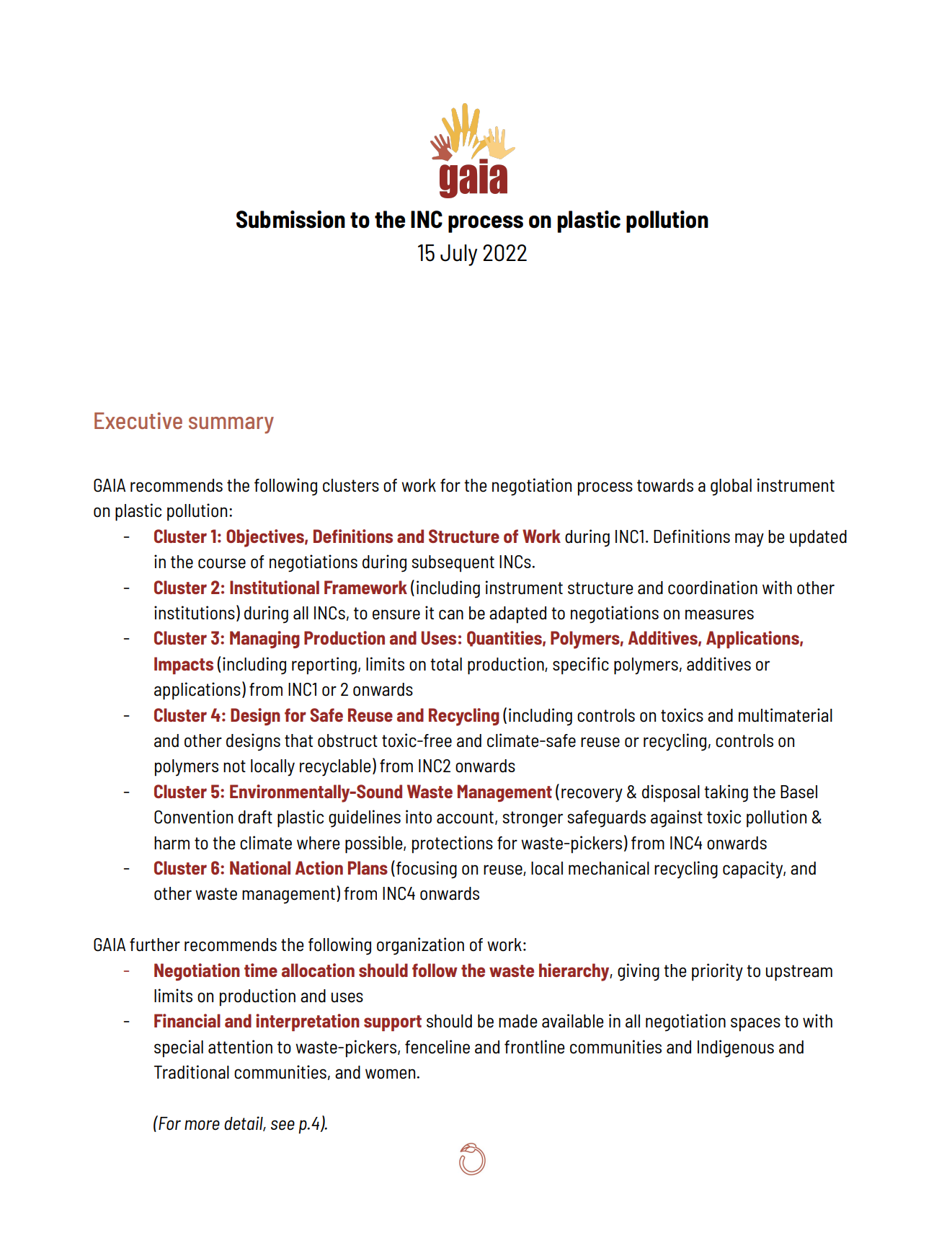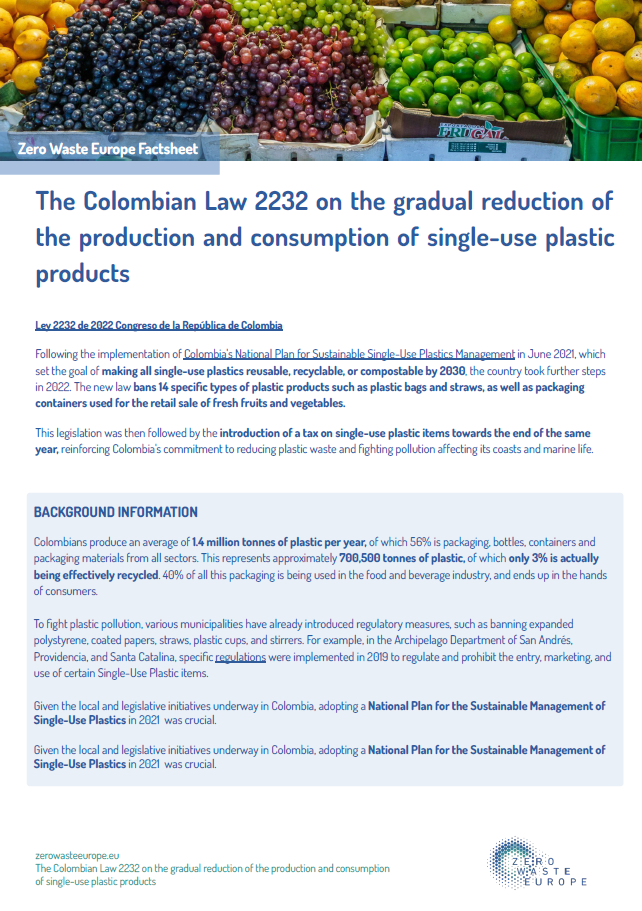
In 2022, Colombia took further steps to strengthen the implementation of its National Plan for Sustainable Single-Use Plastics Management. The country has set the goal of making all single-use plastics reusable, recyclable, or compostable by 2030.
As part of our activities for the 2023 European Week of Waste Reduction, this factsheet analyses Colombia’s Law 2232 on the gradual reduction of the production and consumption of single-use plastic products. The new law bans 14 specific types of plastic products such as plastic bags and straws, as well as packaging containers used for the retail sale of fresh fruits and vegetables.
Available in English.
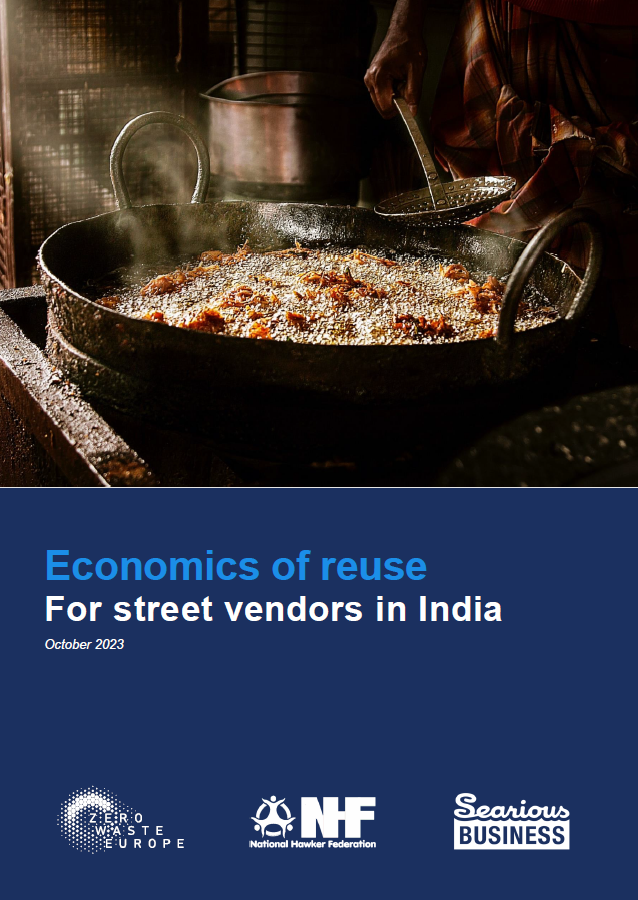
India’s thriving street food sector, currently reliant on single-use plastics (SUP) for packaging, faces a pressing need for sustainable alternatives.
This report by Searious Business, the National Hawker Federation (NHF), and Zero Waste Europe delves into the economic feasibility of a novel reuse system tailored to Indian street food vendors.
While SUP has long been affordable and accessible, it poses substantial environmental challenges, particularly concerning petrochemical production and post-use disposal. The report conducts a robust cost-benefit analysis to address these concerns, comparing the current SUP system with the proposed reuse system. The study’s key objectives encompass an extensive evaluation of the financial implications, costs structures, and potential benefits associated with both systems, emphasising a focus on commonly used street food packaging items – including plates, bowls, cups, and takeaway containers.
Available in English
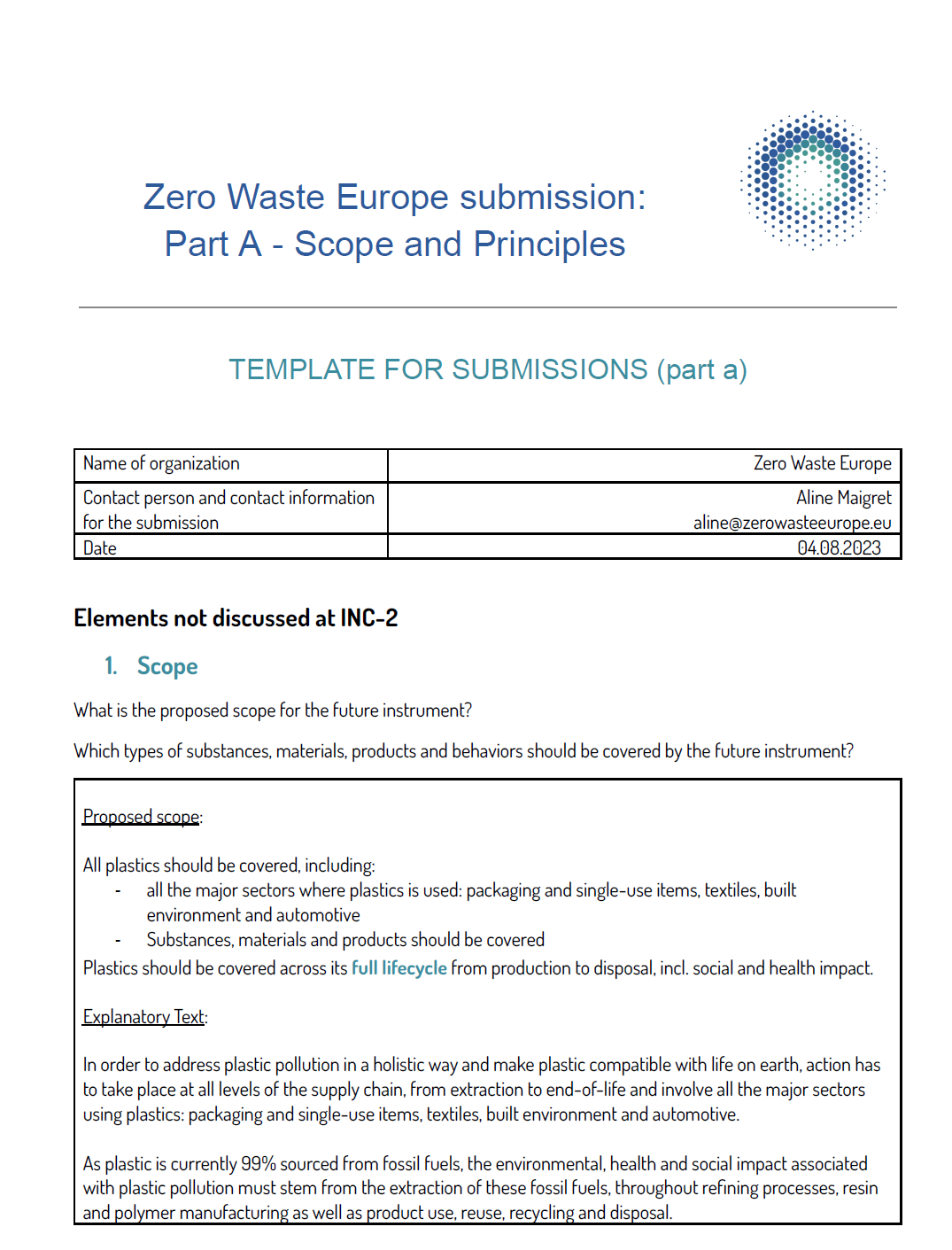
Zero Waste Europe has been working on policies and measures targeting plastic pollution since the early 2000s, has done extensive research, movement building, and policy advocacy, and has implemented zero waste solutions since then.
This document contains our submission to the third Intergovernmental Negotiating Committee (INC-3) to develop an international legally binding instrument on plastic pollution.
Available in English.
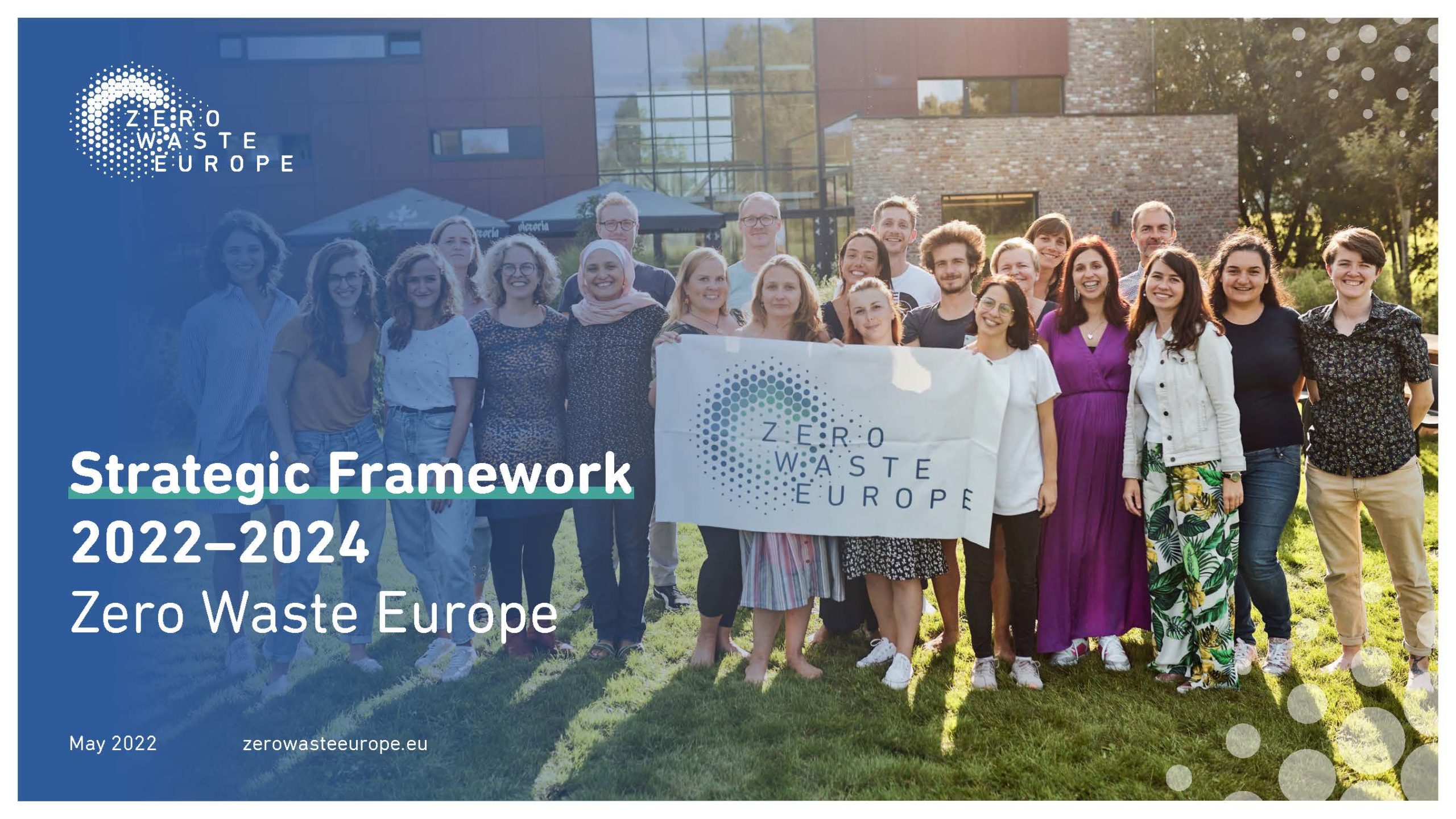
Europe is in the midst of a transition and zero waste is part of it.
Ten years ago, the concept of zero waste was laughed at. Today, zero waste is mainstream, from being considered a practical approach to implementing a circular economy to a trending lifestyle globally. The efforts from civil society groups in Europe and around the world pushed the debate higher in the waste hierarchy. If at any time over the last twenty years reuse and prevention had a chance, it is now. And ZWE is committed to bringing that change forward.
From a content perspective, for the next 3 years, we will focus on bringing IN incentives and funding for the transition, phasing OUT toxics, lifting UP reuse, pushing for BETTER recycling and bringing waste disposal DOWN.
Our Strategic Framework for 2022-24 outlines the ZWE roadmap and goals for the coming years, with the ultimate aim of helping us achieve a zero waste future for Europe (and for the world, while we’re at it).
Available in English.
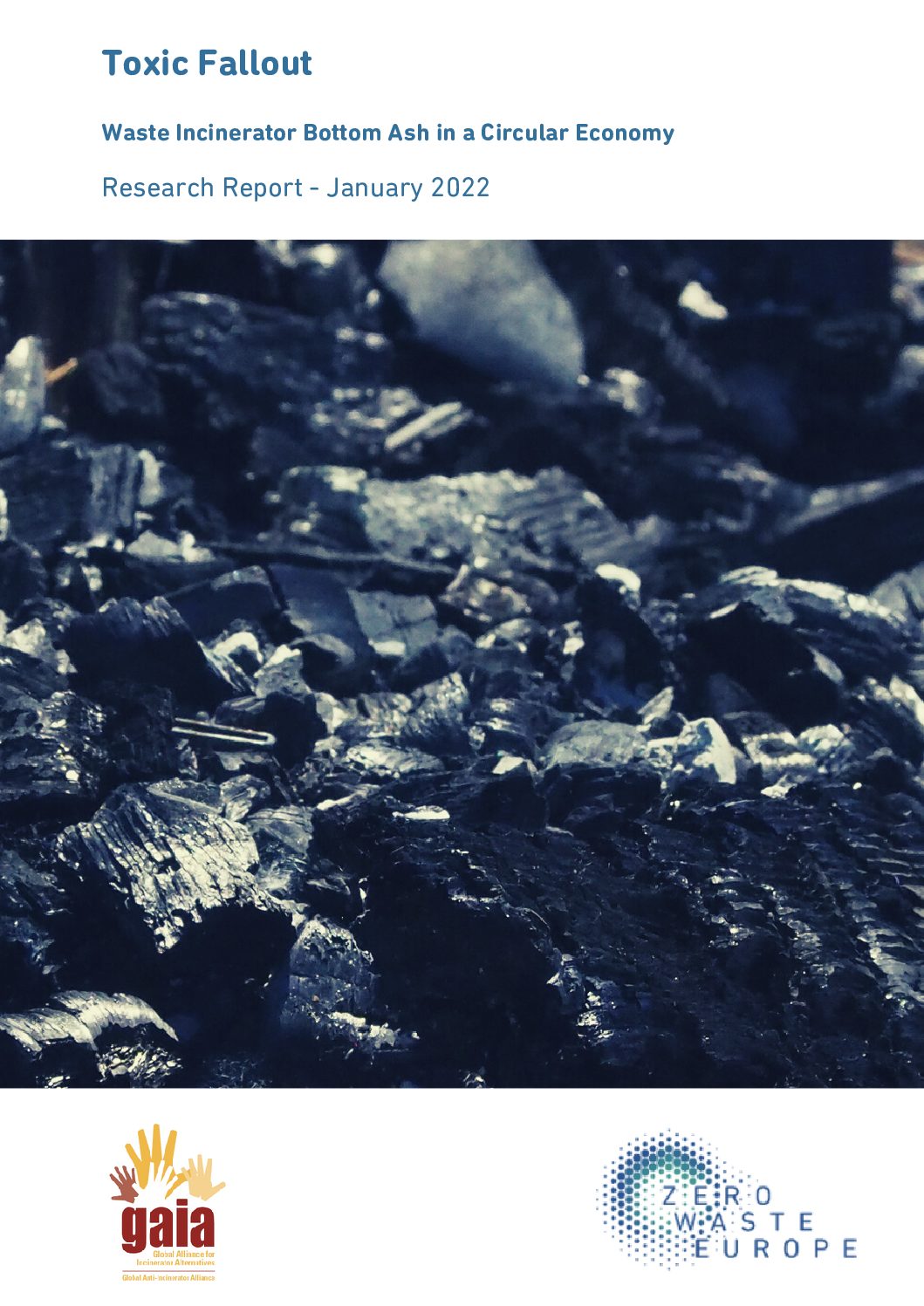
This report uses independent empirical research to evidence that incinerator bottom ash is insidiously hazardous and underregulated. Risk is heightened by the fact that testing methods for its use as a building material are outdated. A list of fifteen concerns for public health and safety is provided in relation to the use of waste incinerator bottom ash in cement-based products and as road/pathway aggregate. Calls for the support of its use within a circular economy are premature, and, as per the precautionary principle, all ongoing usage should cease. Examination of independently analysed bottom ash provides a diagnostic on the operational steady state of waste incinerators, incidentally raising concerns about operational compliance with emissions legislation and the capacity of incinerators to produce benign bottom ash when fed with municipal solid waste.
Available in English, Czech, French, and Traditional Chinese.
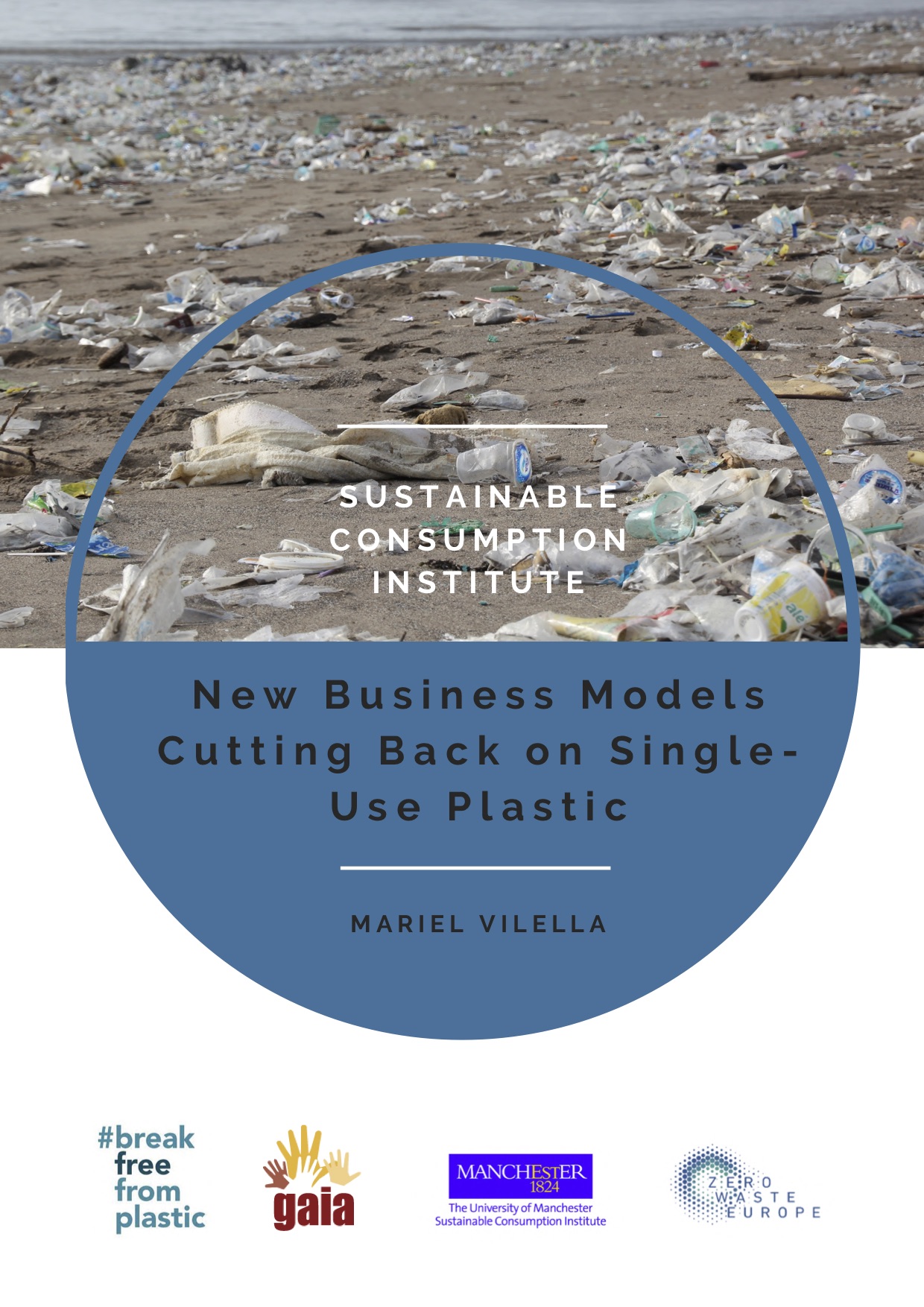
This research conducted at the Sustainable Consumption Institute by Mariel Vilella, Director of Global Strategy at Zero Waste Europe, in collaboration with GAIA and BFFP, looks at examples of successful business models that are successfully contributing to the reduction of single-use plastic consumption, exploring their impact and the key conditions for their replication and growth.
Available in English
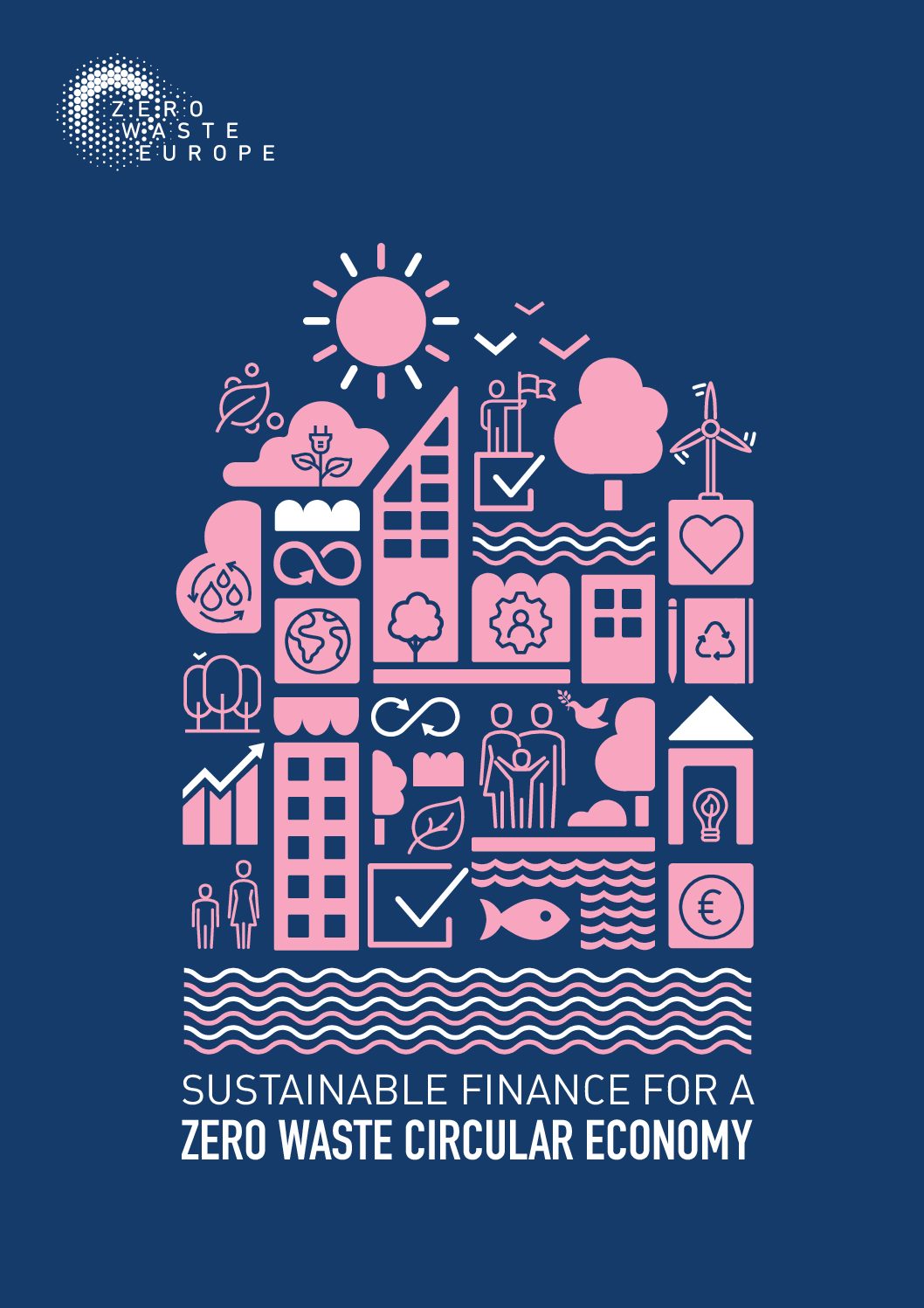
Zero Waste Europe released today a report highlighting the importance of a Zero Waste Circular Economy in the post-COVID-19 recovery. The “Sustainable Finance for a Zero Waste Circular Economy (ZWCE)” report addresses the current lack of clarity around the concept of ZWCE. It provides clear criteria on the activities that need to be included and prioritised under the umbrella of the Sustainable Finanace by looking at the social, economic, climate, and environmental benefits. Check out our infographic here.
Available in English
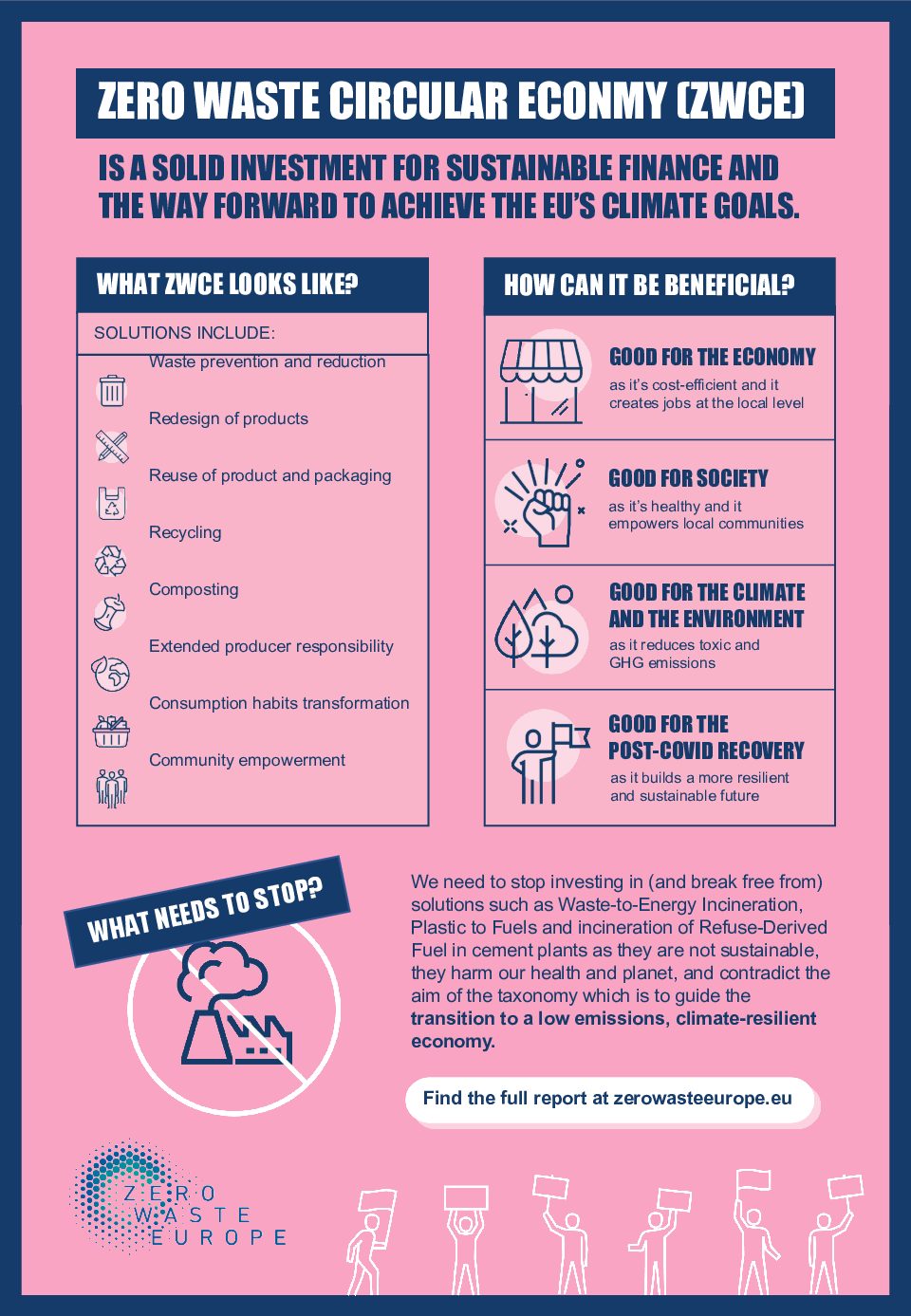
What is a Zero Waste Circular Economy (ZWCE)? And how it could be beneficial for our society, the environment and climate, the economy and the post-COVID-19 recovery? Discover it in our infographic and read the full report here.
Available in English



